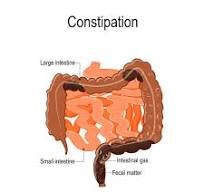
🚽 Let’s Talk About Constipation: Causes, Symptoms & How to Feel Better
Constipation might be an uncomfortable topic, but it’s something most of us deal with at some point. Whether it’s caused by stress, diet, or lifestyle, constipation can make you feel bloated, sluggish, and downright irritated. The good news? It’s usually treatable with some simple changes.
Let’s break down what constipation is, what causes it, and how you can get your digestive system back on track.
🧻 What Is Constipation?
Constipation means having fewer than three bowel movements per week or having difficulty passing stool. The stool may be hard, dry, or lumpy, and passing it can be painful or involve straining.
Everyone’s “normal” is different, but if you’re going less often than usual or feel like your bowel movements aren’t complete, you might be constipated.
❓What Causes Constipation?
There are many possible causes of constipation, including:
- Low fiber diet
- Not drinking enough water
- Lack of physical activity
- Delaying the urge to go
- Stress or travel
- Changes in routine or diet
- Certain medications (like painkillers or antidepressants)
- Medical conditions (such as IBS, diabetes, or thyroid problems)
⚠️ Symptoms of Constipation
Aside from infrequent bowel movements, other signs of constipation include:
- Hard or lumpy stools
- Straining during bowel movements
- Feeling like you can’t completely empty your bowels
- Abdominal bloating or pain
- Nausea or a reduced appetite
🍎 Natural Ways to Relieve Constipation
You don’t always need medication to fix constipation. Here are some natural and effective ways to get things moving:
1. Eat More Fiber
Fiber helps add bulk to your stool and makes it easier to pass. Good sources include:
- Fruits (like apples, pears, berries)
- Vegetables (like broccoli, carrots, spinach)
- Whole grains (oats, brown rice, whole wheat bread)
- Legumes (beans, lentils)
2. Drink Plenty of Water
Dehydration is a common cause of constipation. Aim for at least 8 glasses of water a day.
3. Exercise Regularly
Movement helps your intestines work more efficiently. Try walking, yoga, or stretching.
4. Go When You Feel the Urge
Don’t ignore the call of nature! Holding it in can lead to harder stools and more discomfort.
5. Try Natural Remedies
Some people find relief with:
- Warm water with lemon in the morning
- Prune juice or dried prunes
- Flaxseeds or chia seeds soaked in water
💊 When to Consider Medication
If lifestyle changes don’t help, over-the-counter laxatives can be used occasionally. Types include:
- Fiber supplements (e.g., psyllium husk)
- Stool softeners
- Osmotic laxatives
- Stimulant laxatives (for short-term use only)
Always talk to a healthcare provider before using laxatives regularly.
🩺 When to See a Doctor
See a doctor if you experience:
- Constipation that lasts more than 2–3 weeks
- Blood in your stool
- Severe abdominal pain
- Unexplained weight loss
- Frequent use of laxatives without relief
Chronic constipation can sometimes signal an underlying health issue, so don’t ignore it.
🌿 Final Thoughts
Constipation is common—but you don’t have to suffer in silence. With the right diet, hydration, movement, and a little self-care, you can support your digestion and feel better naturally.
Listen to your gut—it usually knows what it needs. 💚
